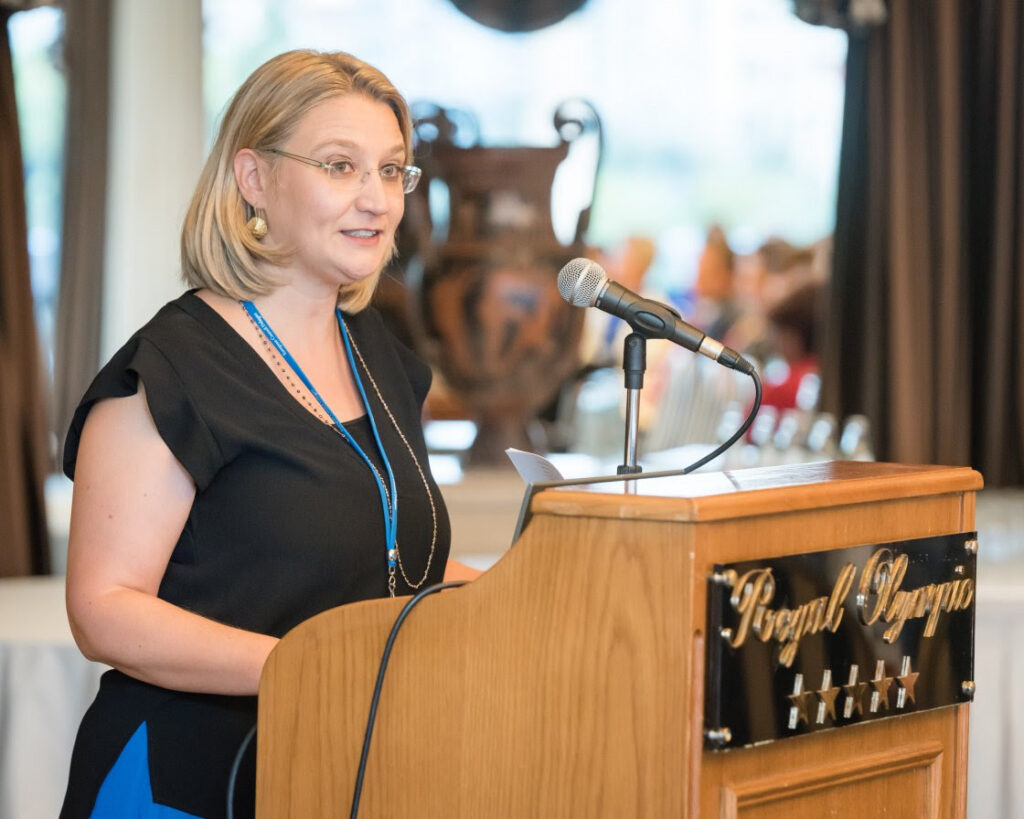A readership survey we issued way back in January 2018 showed that alumnae wish to read more about the lives and achievements of fellow alumnae in Europe. Below is our sixth feature interview, focusing on Ioli Christopoulou Class of ’01.
Please get in touch if you feel your story would be of interest, or would like to recommend a fellow alum!
Spotlight on… Ioli Christopoulou Class of ’01
Ioli is a proud Mount Holyoke alumna, class of 2001, with a strong passion for environmental protection. Read more about her professional life, think-tank and environmental work in this latest interview in our ‘In the Spotlight’ series.

Name: Ioli Christopoulou
Class Year: 2001
1) Can you tell us a few words about yourself?
A proud Mount Holyoke alumna, class of 2001, with a strong passion for environmental protection! This passion led to the co-founding of The Green Tank, Greece’s first environmental think tank, which is my main and most exciting endeavour currently!
2) What inspired you to become an environmentalist?
To be honest, I am not exactly sure. I guess I was influenced by my family and my school, since I was about 13 years old or so when I started saying that I would become an environmental lawyer. This is not exactly the path I followed, but at Mount Holyoke I wrote my thesis with late Professor Walter Stewart on international environmental law!
3) How did you break into your field?
It made a difference that I knew what I wanted to do. My compass throughout my career has been “to change the world, to make it more sustainable… it’s up to us”. It is this determination that change is possible that has guided me every step of the way.
4) Do you have a particular role model that pushed you/inspired you/or challenged you to conquer your fears?
I was lucky to have had many inspirational figures in my life, including many strong women. They have offered a variety of lessons, insights, advice, examples. Some still do! Over time, these have created a beautiful, rich, resourceful basket of knowledge and inspiration from which I often draw.
5) What’s one challenge you faced over the course of the years and how did you manage to overcome it?
The moment that I was faced with injustice from a system that I had trusted stands out. The absence of accountability when that happened was an even more painful shock to me. So, to overcome the challenge, I chose to remain true to my values – they were non-negotiable.
Indeed, as the saying goes, every cloud has a silver lining. That moment became a trigger for change and a step forward, a step for which I feel very happy and proud.
6) Did you have a vision of your career when you were at Mount Holyoke? How did that vision change over the years?
Yes, it was clear from the beginning that my career would be in environmental policy. And it pretty much remains the same!
7) What is your most fond memory of your time back at Mount Holyoke?
There are many fond memories. I remember fondly several of my classes, the hours spent with friends… in the library stacks. Then my mind switches to the hours sorting mail with at the school’s post-office and the long chats in the dining halls. Other memories, are from other on-campus activities, mostly to how a group of us persuaded the school to switch to fair trade coffee as well as our late Sunday preparations for the Model United Nations competitions.
8) How did your MHC experience contribute to your career aspirations?
When I went back to campus in the fall of 2019, I realized, perhaps, more clearly than ever before, that Mount Holyoke gave me a very solid foundation on which to build my future. The experience – in and out of class – fortified me with the assurance that an impactful career is possible.
9) What advice would you give to young women today who want to break into this field?
My advice would be to remain optimistic. While trends on the state of the environment are more than alarming, we can still reverse them and in fact, I think, that change is already happening.
10) What according to you is the biggest environmental threat today?
The interlinked climate and biodiversity crises, which, if not reversed, will change our precious planet Earth forever.
11) If there’s one thing that everyone could do today to help protect the environment, what would that be?
I don’t like to dictate what one must do, as it depends on one’s circumstances. One can reduce, reuse and recycle more, another can use the bike, someone else can switch to a vegetarian diet or plant a tree. So I would rather say do what you can; and, if you are in a position to do more, then do so!
Interview conducted Spring 2021 by Dimitra China ’16 and Delia Youssef ’15